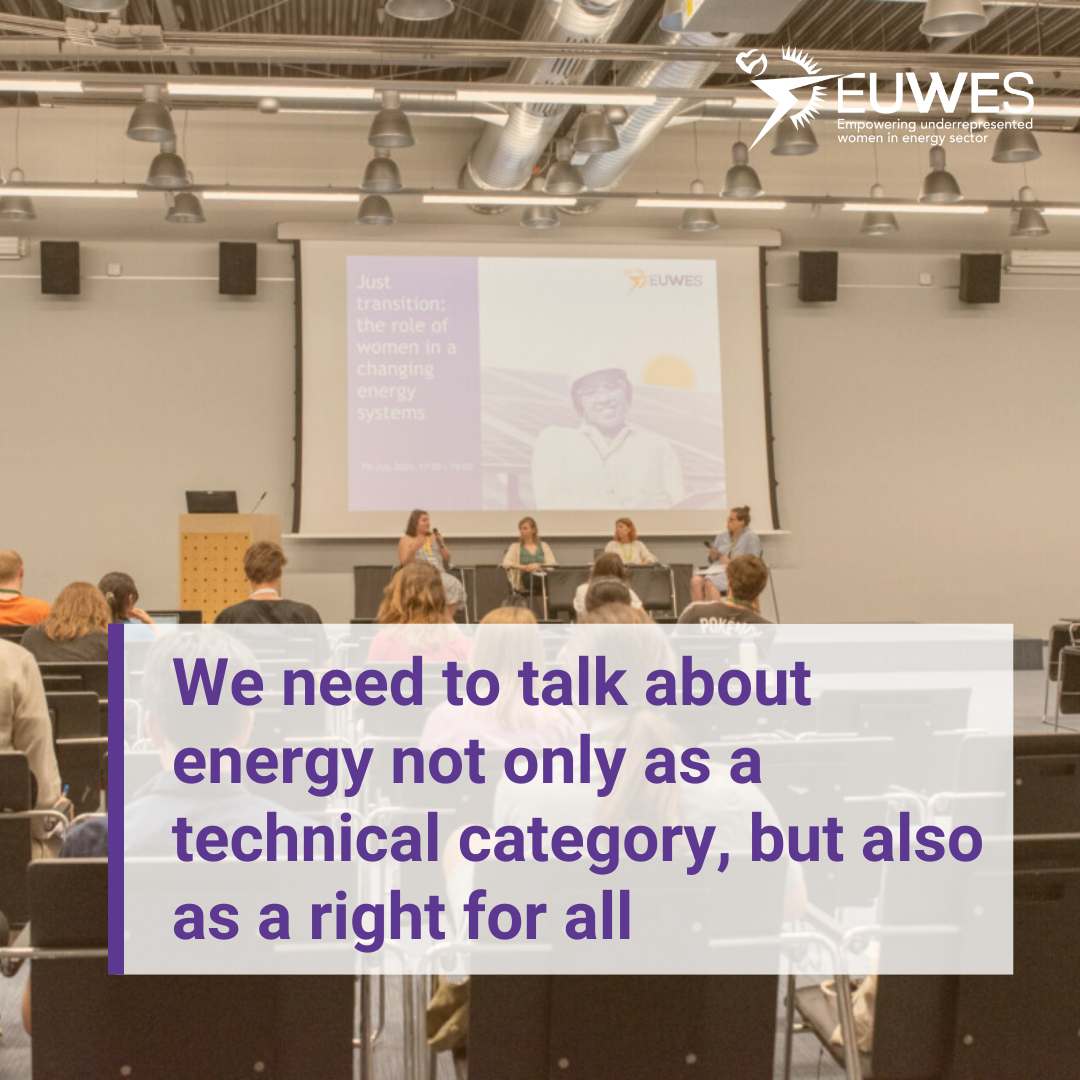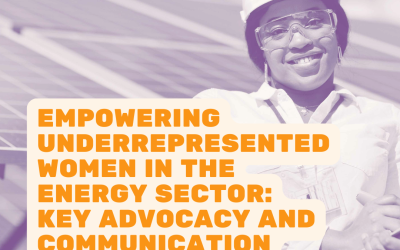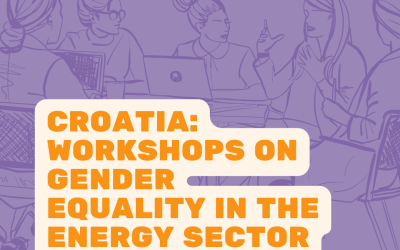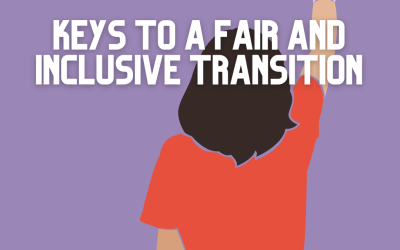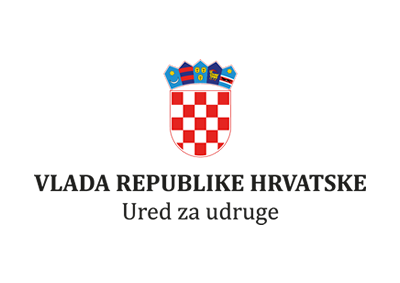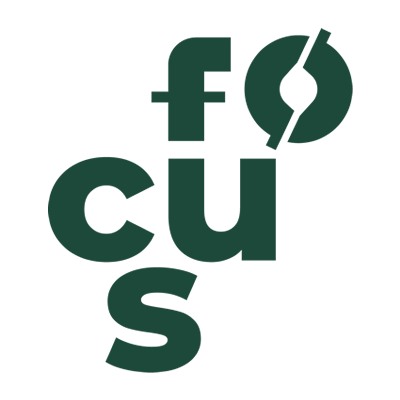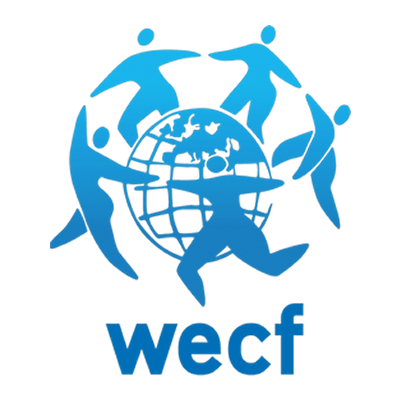A stronger role for women in the green transition and a more accessible energy sector would benefit society in every way. We need structural changes, a change of mindset, and the integration of the technical and social dimensions of energy. Energy is a fundamental right for all. We must ensure universal access and, through democratic governance, ensure that the energy system does not deepen inequalities. These are some of the conclusions of the panel discussion “A Just Transition: The Role of Women in a Changing Energy System”, which was hosted by Focus – Association for Sustainable Development in Ljubljana and brought together women who know and study the energy sector from different perspectives.
Europe’s current energy system is based on fossil fuel imports, drives climate change and contributes to growing inequalities. Women and female-headed households are disproportionately affected by energy and transport poverty, and this vulnerability is further exacerbated by factors such as age, disability and ethnicity. Women and girls around the world are more vulnerable to the negative impacts of climate change, mainly because of their economic disadvantage.
A growing body of research shows that women bear a greater burden of the consequences of the current energy system, which is in transition and in which women are also underrepresented. Energy is one of the least gender diverse sectors. At European Union level, only 24% of employees in the energy sector are women, while in Slovenia women represent only 15% of all employees in the energy sector. Women are underrepresented in the decision-making processes and in the management structures of energy companies, their ideas are harder to penetrate, they are paid less and find it harder to get promoted. This gap is also reflected in the renewable energy sectors and, surprisingly, also in energy communities.
Are current EU policies exacerbating the problem? Is it enough to increase women’s representation or do we need deeper changes? Can women be the driving force behind the democratisation of energy? These were the questions answered by women experts from Slovenia and abroad at the panel discussion as part of the programme of the International Summer School of Political Ecology 2024 at the Faculty of Social Sciences in Ljubljana.
Women have a wealth of knowledge for energy communities
Sandy Fameliari, energy community expert at the Greek cooperative Electra Energy:
“Participation in an energy community, such as a cooperative, is often presented as an investment, and women have historically been discouraged from making financial investments. This is not fair and we need to change this mindset. Women make up the majority of householders and have a lot of knowledge that is useful in energy communities. It is important that women are represented on the boards and in leadership positions of energy communities, as this contributes to diversity and better decision-making. One proactive approach to the problem of women’s under-representation in energy communities is to provide childcare at energy community meetings, as unfortunately women are still largely tasked with caring responsibilities in the household. This is just one practical way to increase the number of women in energy communities, but there are others. It is also important to talk about technology in a different way and to engage with feminist organisations.”
Energy must be considered a human right
Lavinia Steinfort, political geographer and feminist eco-socialist at the Transnational Institute, the Netherlands:
“Of course we need programmes and training in technical skills that specifically target women, following the example of the IT sector. When it comes to the energy transition, it is important to understand the technical language. At the same time, we need to be aware that technocracy widens the gap between men and women in the energy sector, so we need to increase energy literacy. I am referring here to energy literacy in the sense of talking about energy in plain language. Just as we think of water as a necessity for life, we need to think of energy as something that is necessary for survival. Energy must be seen as a human right and universal access to it must be guaranteed.”
EU policies do not benefit women and men equally
Lidija Živčič, energy poverty expert at Focus – Association for Sustainable Development:
“EU energy policies do not benefit women and men equally. I would point to the Energy Efficiency Directive. There is a lot of funding for home renovation, which is positive. But statistics show that homeowners are more likely to be men, while women are more likely to live in rented accommodation. Furthermore, the sectors involved in these renovations, such as construction, employ a predominantly male workforce. These policies in themselves benefit men more than women. There is a need to strike a balance and include a gender dimension in the design of these policies, and to see to see how they will affect different genders and other marginalised groups.”
It’s not just women who are responsible for tackling the environmental crisis
Katjuša Šavc, transport and energy expert at Focus – Association for Sustainable Development:
“At a time when the climate crisis is making us increasingly aware of the need for a rapid energy transition and a move away from fossil fuels, the energy sector can benefit from women as agents of change. But it is important to stress that it is not only women who are responsible for addressing the environmental crisis. This is not another caring role for women to take on. Despite the evidence that women are behaving more sustainably both in their households and in their workplaces, and that they are more proactive in finding sustainable solutions, the green transition is a matter for society as a whole.”
